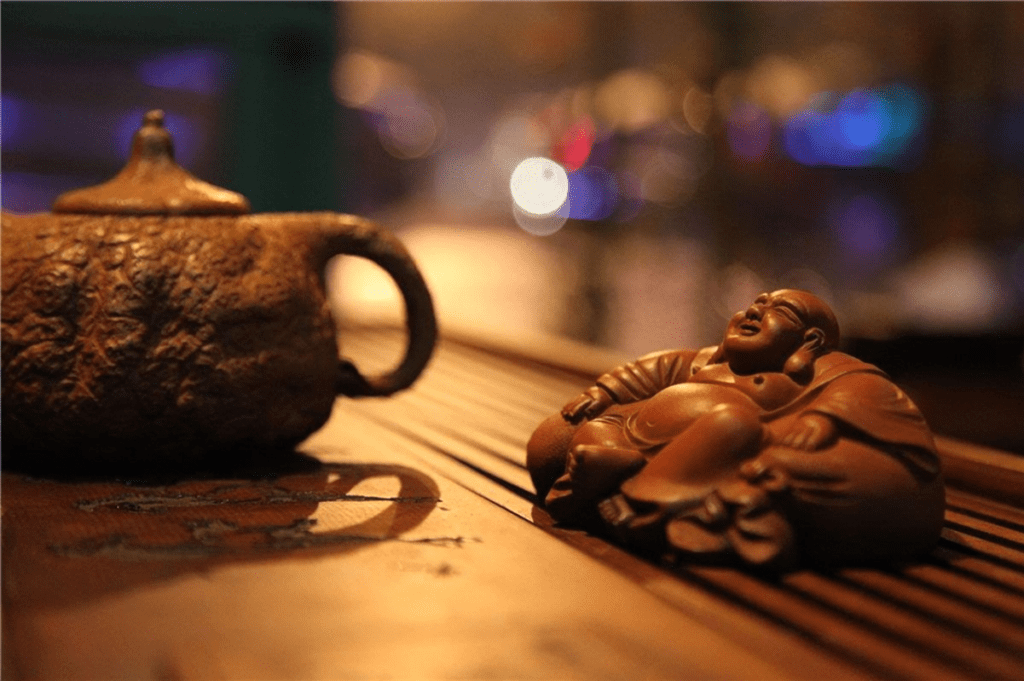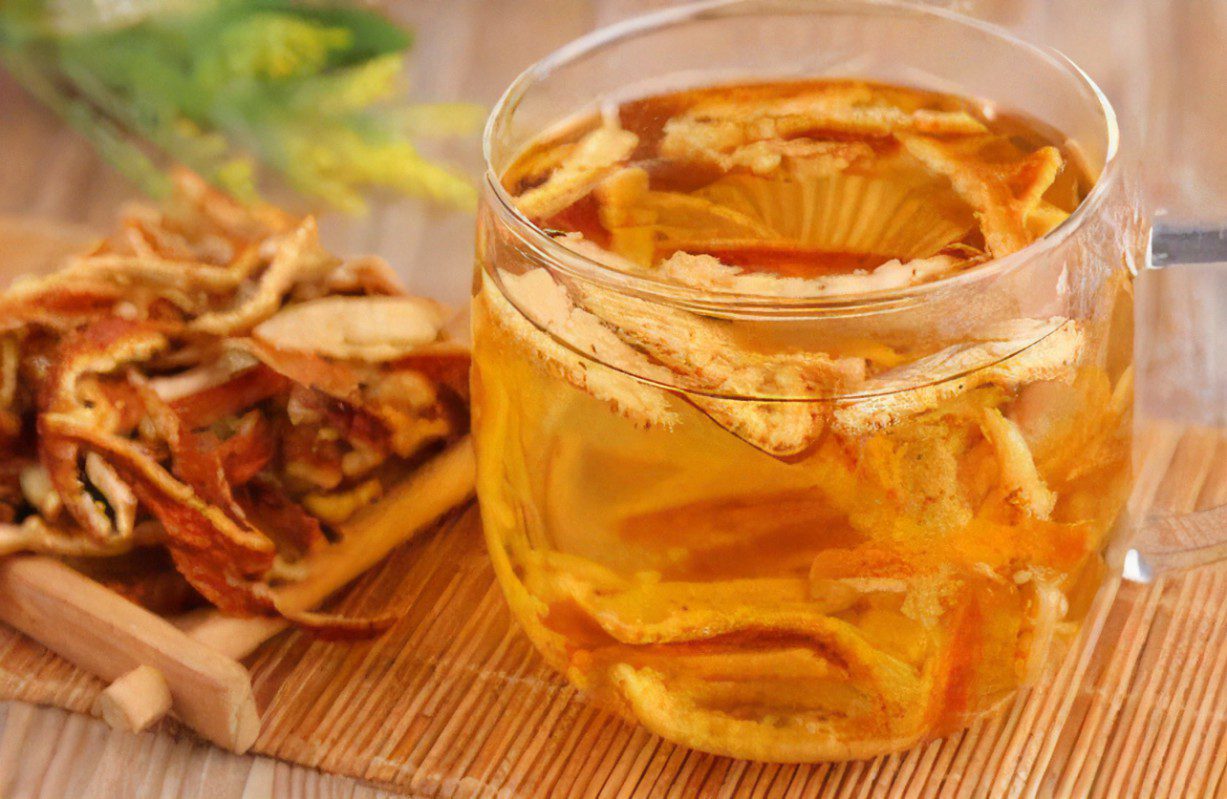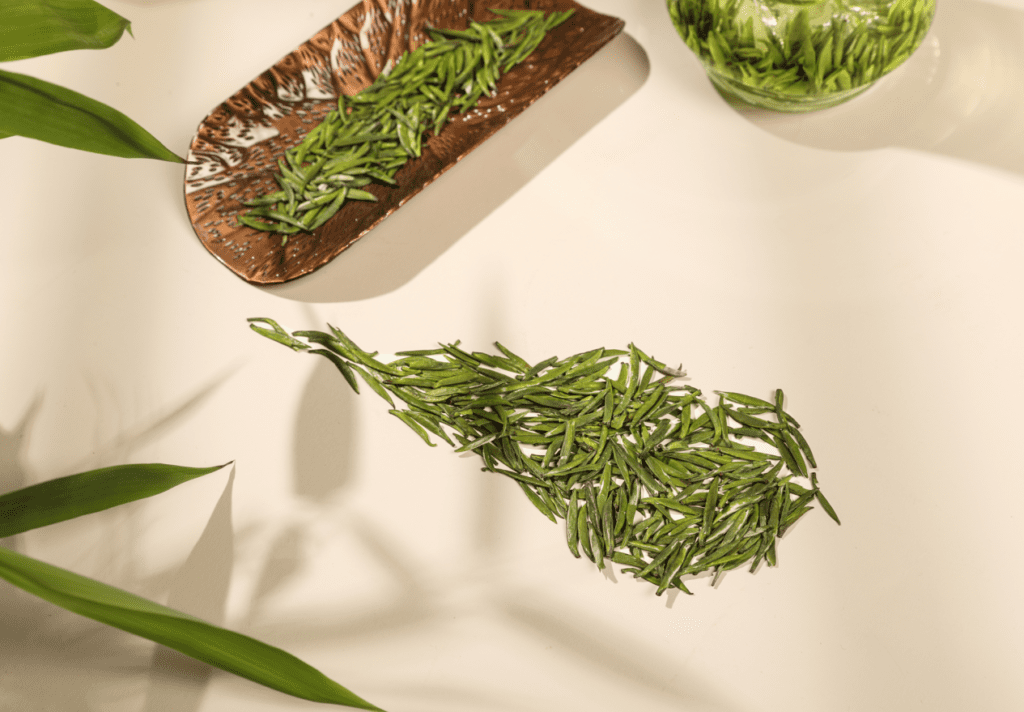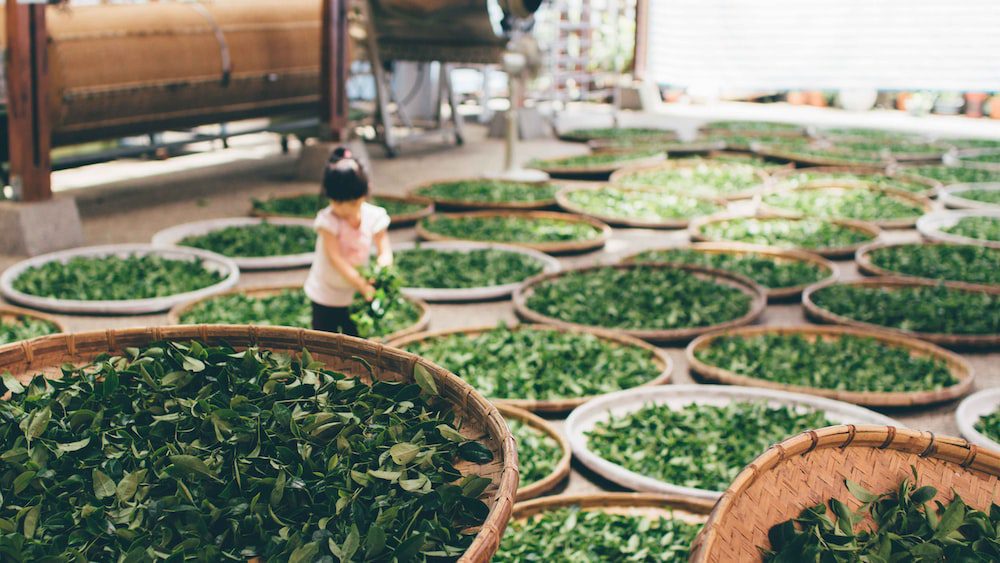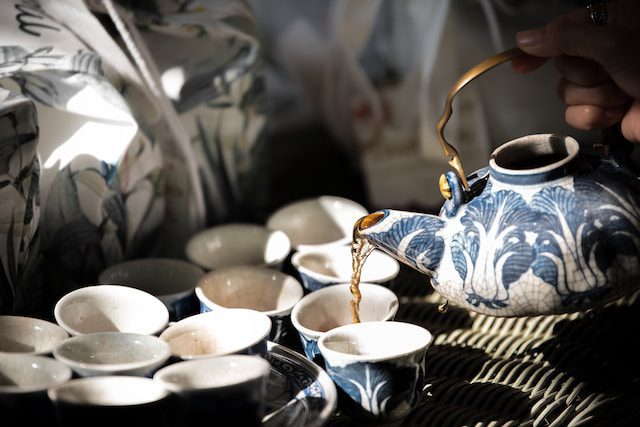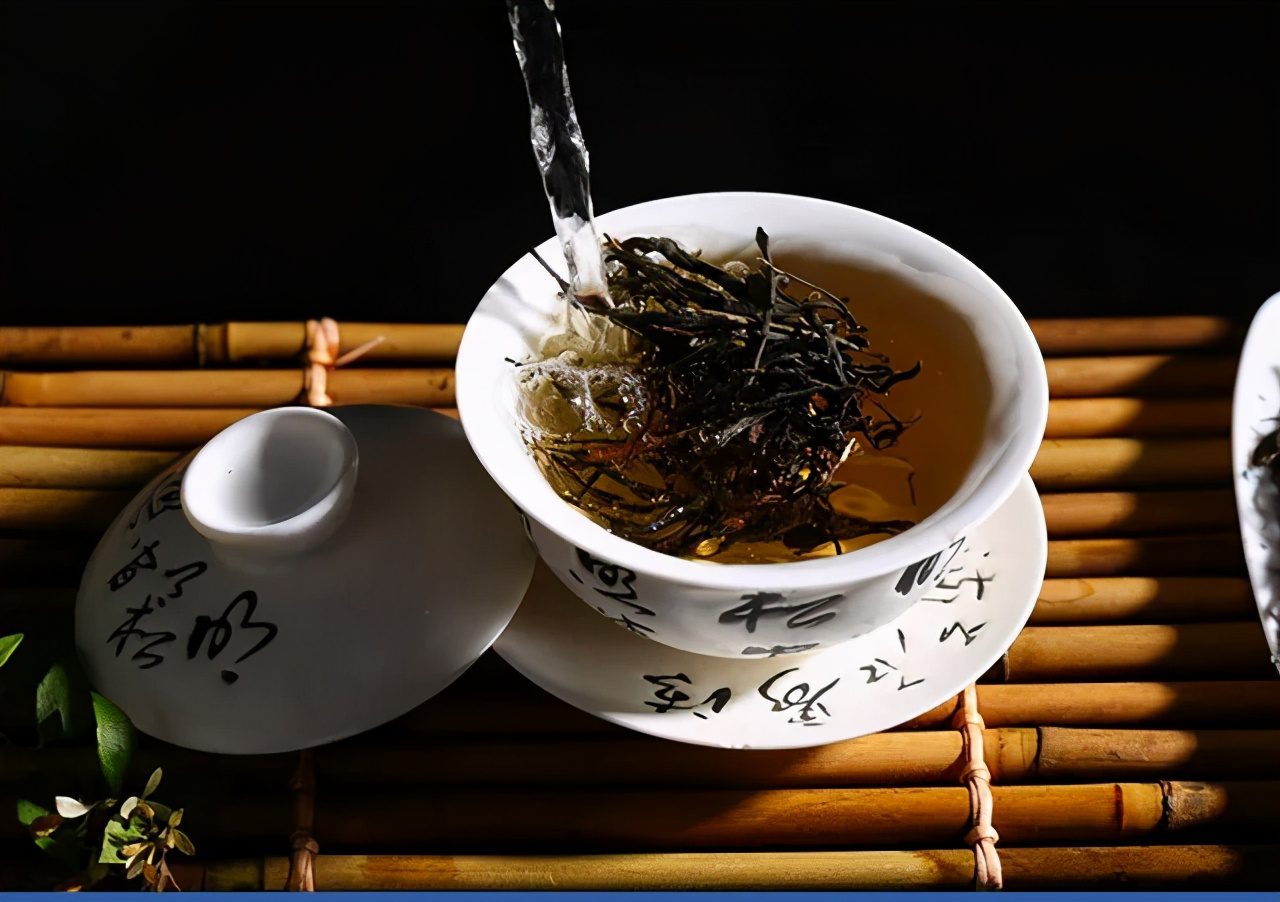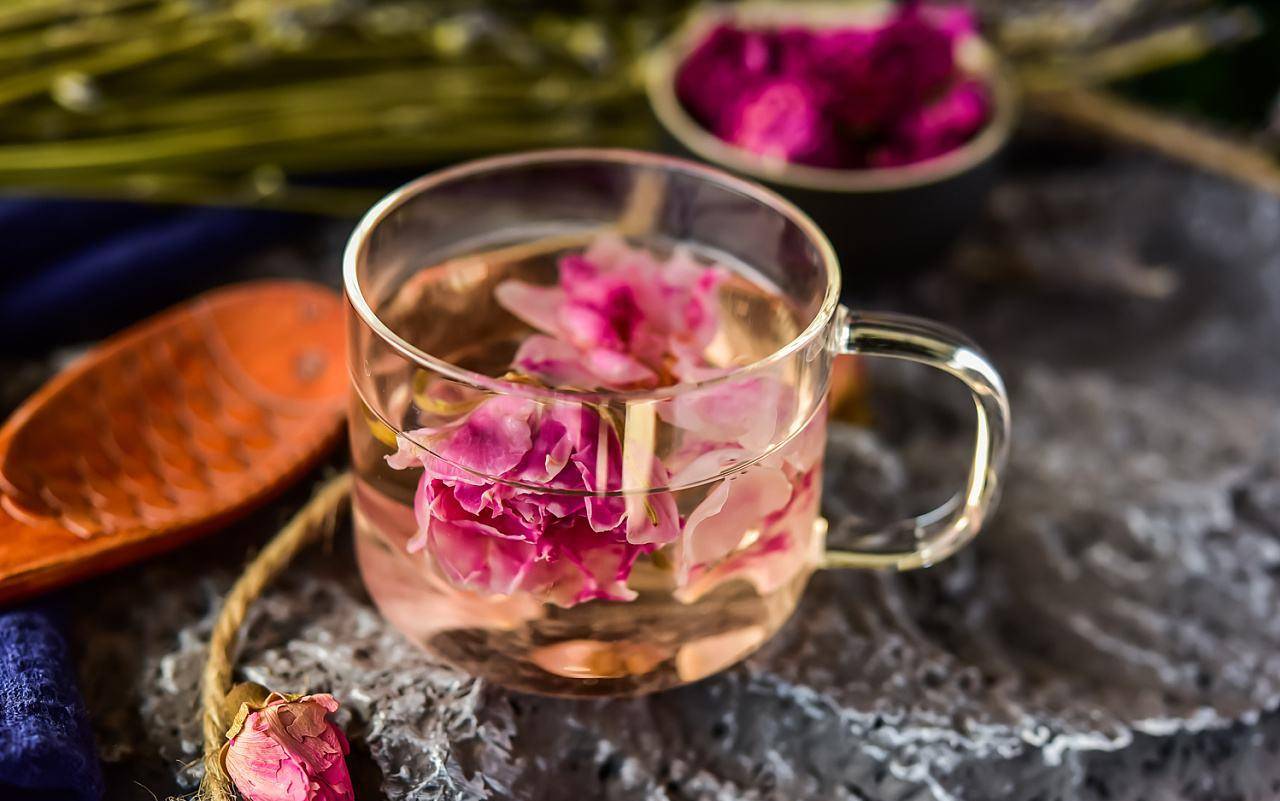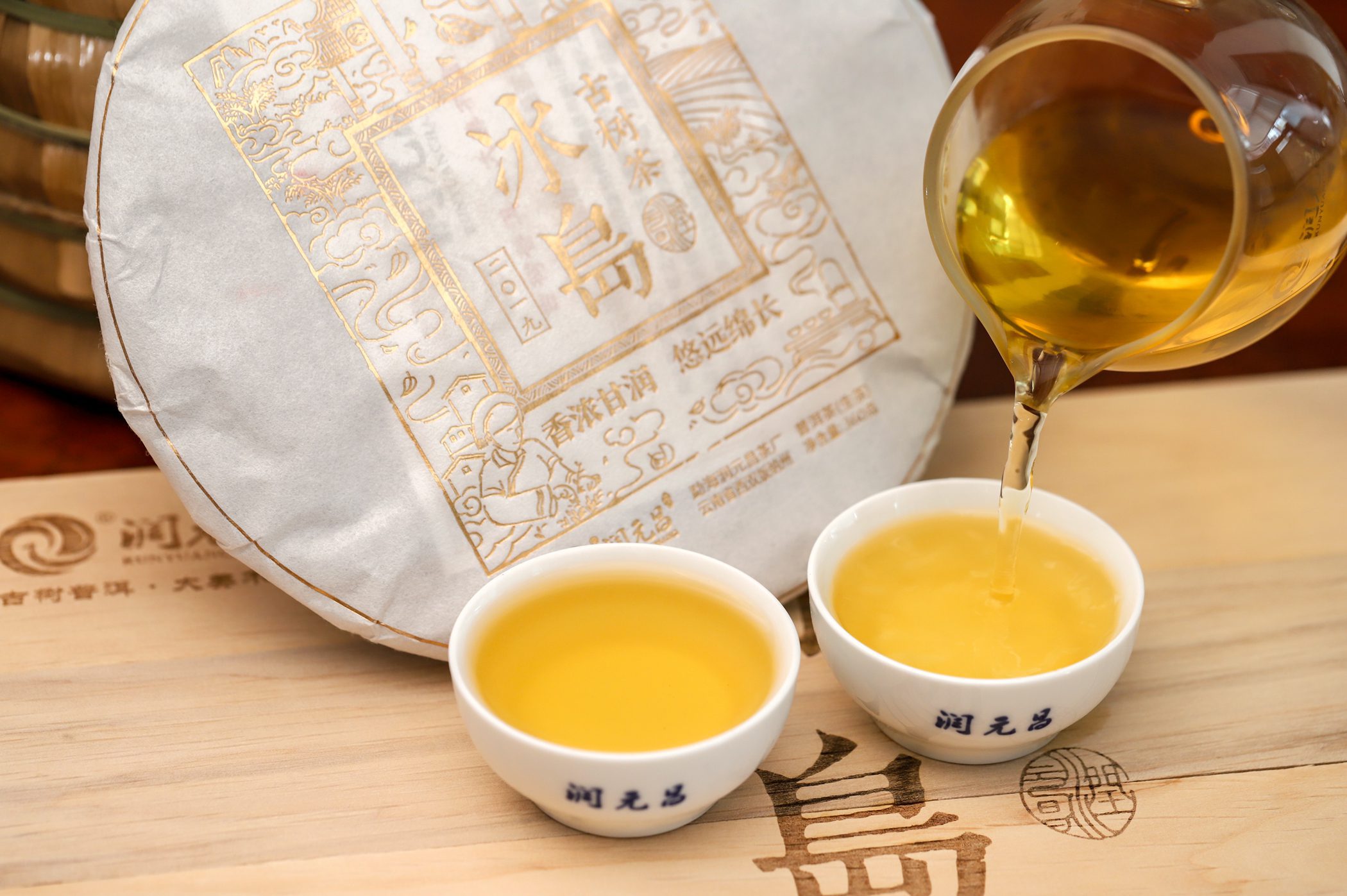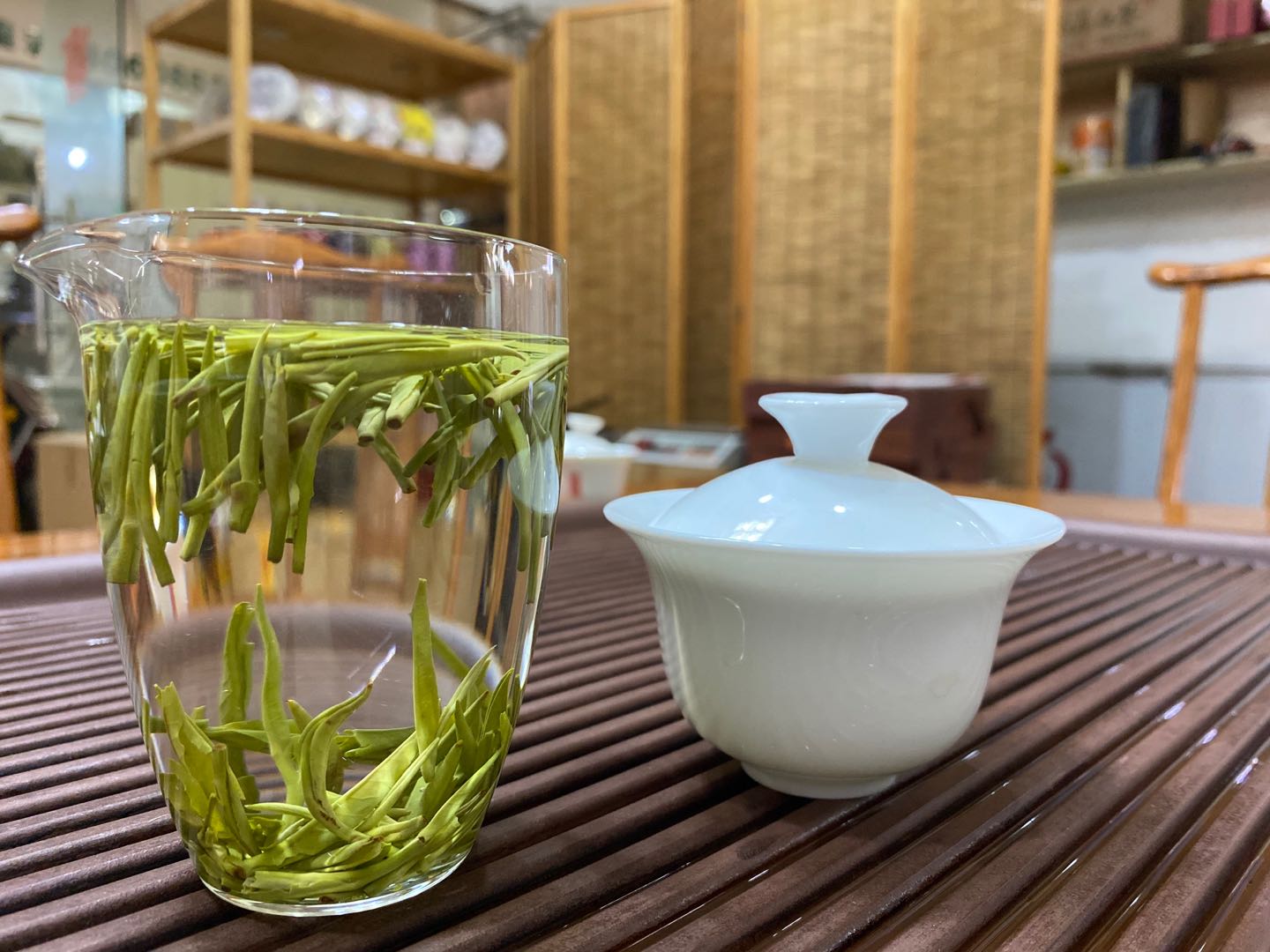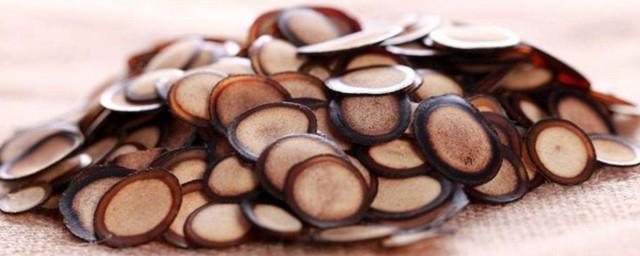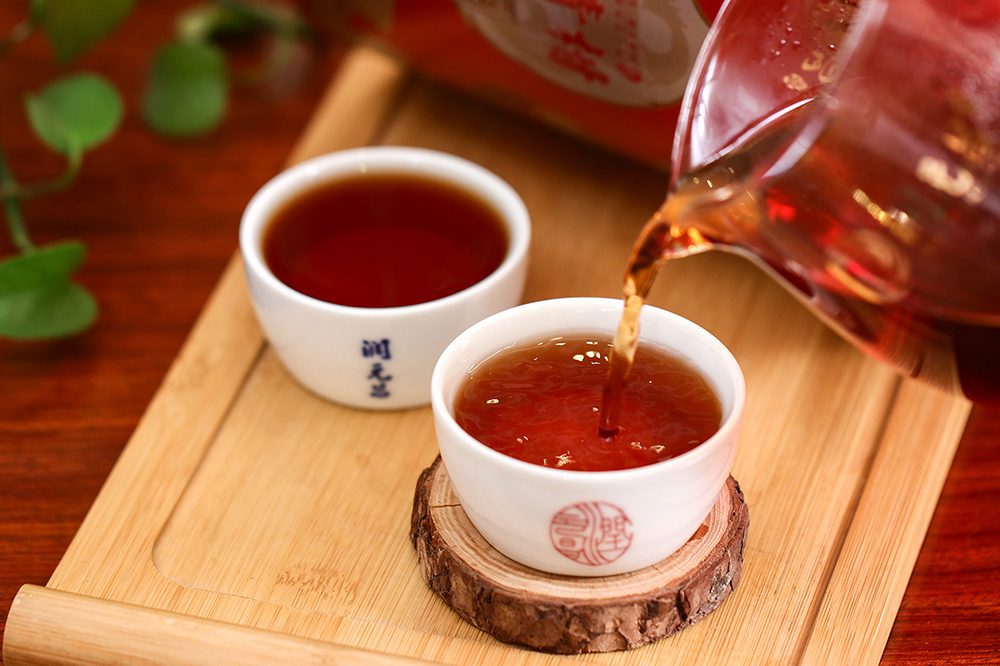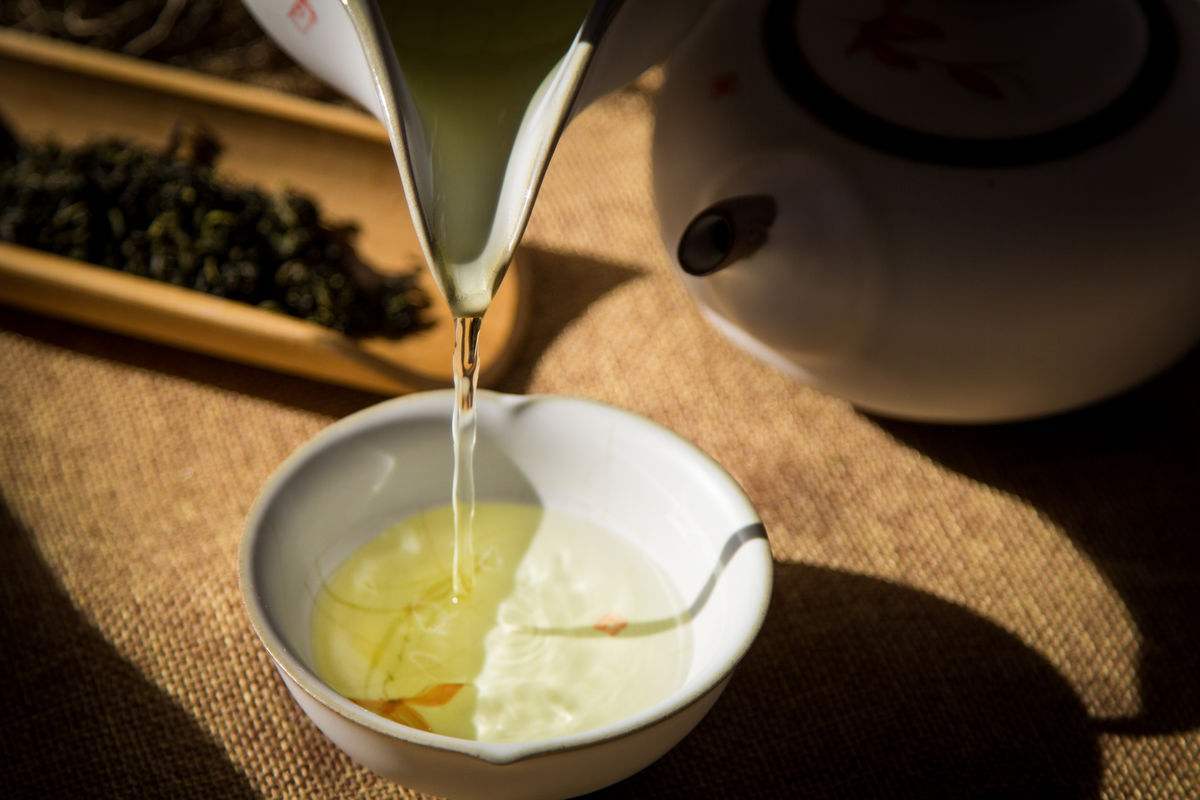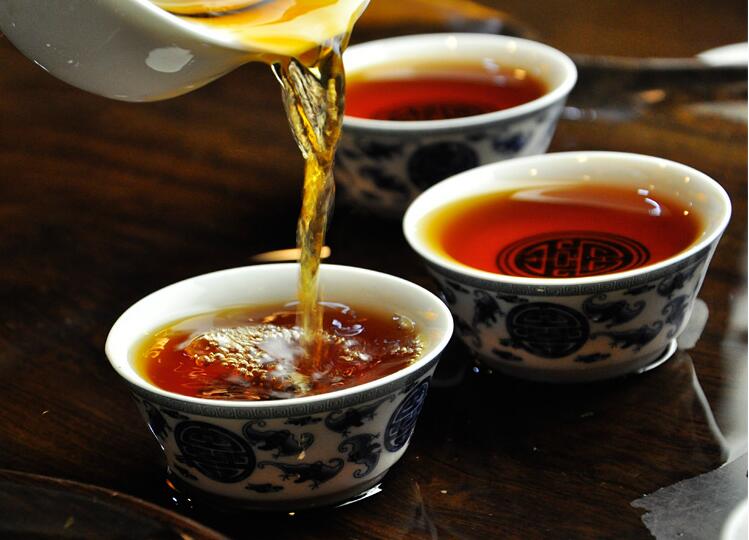In Guangdong, especially Guangzhou, when you are enjoying a cup of tea poured for you, do you hear the crisp sound of finger-knocking? This is not someone urging you to drink the tea, but a traditional etiquette to express gratitude - the finger-knocking ceremony.

The origin of the kowtow ritual:
There is a beautiful folk legend about the origin of the finger-knocking ceremony. According to legend, Emperor Qianlong came to a teahouse to rest his feet during his private visit to Jiangnan. The owner of the teahouse enthusiastically poured tea for Emperor Qianlong, who tasted it and praised it. To show his gratitude, Emperor Qianlong wanted to kneel down and kowtow to the teahouse owner, but considering his status, he instead gently tapped his finger on the table to show his appreciation.
This action was watched by Heshen who was on the sidelines, and he was inspired to follow Emperor Qianlong's example and knocked on the table as well. Emperor Qianlong smiled knowingly and said, "This is the finger-knocking salute. In the future, if you are in a teahouse and someone pours tea for you, use this salute to show your appreciation." From then on, the finger-knocking ceremony was spread in Guangdong and became one of the indispensable etiquettes when people drank tea.
The symbolism of the kowtow ritual:
The finger-knocking ceremony may seem simple, but there is a profound symbolism behind it. It expresses respect for the tea ceremony, praise for the aroma of the tea, and gratitude to the person pouring the tea.
In Guangdong, tea culture has a long history and people have a deep affection for tea. The finger-knocking ceremony is the embodiment of this tea culture, which reflects the reverence and gratitude of Cantonese people for tea.
Details of the finger-knocking ceremony: there are rules about the respect of the young and the old.
Finger-knocking is simple, but there are rules. Different occasions and different statuses have different ways of kowtowing.
- When an elder pours tea for a junior, the junior should return the favor three times. This shows respect and appreciation for elders.
- Between peers, you can return the favor by pouring tea for each other. This shows respect and appreciation for your friend.
- When a junior pours tea for an elder, the elder may not return the favor. This indicates the care and lifting up of the elders to their juniors.
The following details should be kept in mind when performing the kowtow:
- Fingers should be together and gently tapping on the table.
- The number of taps should depend on the status of the other person and the occasion.
- Tapping should be appreciated with a smile on your face.
Passing on the Finger Ceremony: Promoting Traditional Culture
Finger knocking is not only a tea table etiquette, but also a traditional culture. It embodies the traditional Chinese virtues of respecting the elderly, loving the young, and being modest and courteous.
In modern society, with the accelerated pace of life, the way people drink tea has changed. However, the traditional ritual of finger-knocking is still inherited today. It reminds people that while enjoying the material life, they should not forget the inheritance of spiritual culture.
Though the kowtow is just a simple gesture, the cultural significance behind it is very far-reaching. Understanding and mastering this custom not only enriches our cultural knowledge, but also adds a sense of courtesy and warmth to our daily lives.

